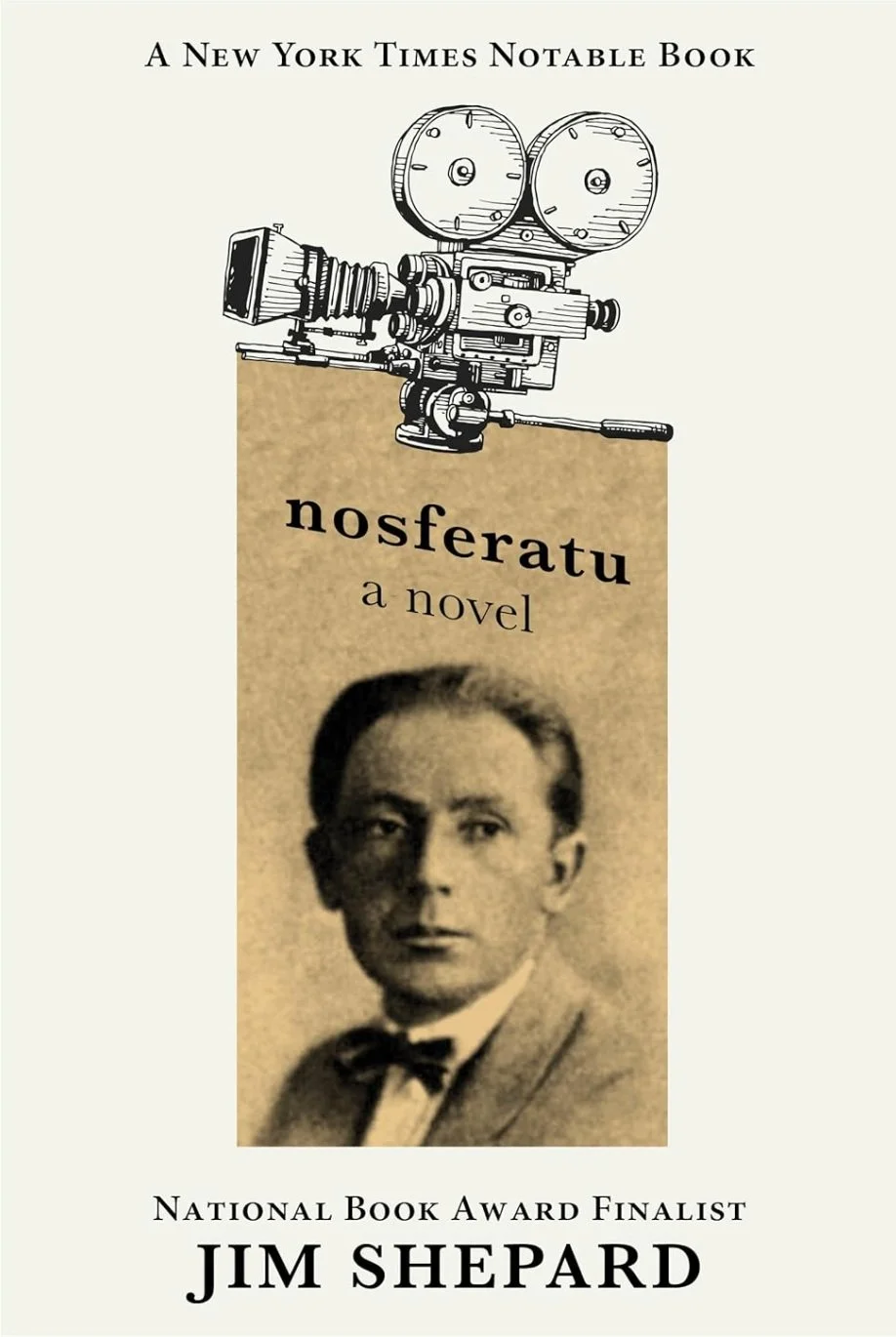Nosferatu
“As fine a realization of the creative process — of the struggle to bring to life an interior vision, to make it move — as exists in the literature of film… In Nosferatu F.W. Murnau becomes his own subject — one of the undead, hollowed out and sucked dry by the love he has betrayed. The life, again, informs, deforms, and becomes the work.” — The New York Times Book Review
“Shepard’s is a beautiful fiction, an atmospheric picture of an era as well as a sensitive evocation of a man. Delicately, and with great economy, it plots the transformation of Wilhelm Plumpe, a bourgeois adolescent who was never quite like other boys, into the more mysterious Murnau, an obsessive cinematic genius who was not quite like anyone at all. Murnau emerges as a lonely, driven figure. What drives him, in Shepard’s affecting, persuasive account, is love and loss and doubt.” — The Times (London)
“[A] brilliant fictional version of the director’s life… Murnau is one of the most arresting characters in recent fiction, and Jim Shepard persuades us both that we know far more about him than any of his colleagues or lovers do, and that there is still more about him to know.” — The International Herald Tribune
“Economically told and evocatively written… With the publication of this novel, there are now two splendid works of art called Nosferatu.” — The Washington Post Book World
“Nosferatu, Jim Shepard’s haunting new book, his fifth and finest novel thus far, appears just over a century after Dracula, and it proves that the kingdom Stoker charted still has much value to offer the imagination… The consistently well-chosen details carry us into a world fully and beautifully rendered, a world aching with lyricism and longing, a lost world vividly recaptured." — The Chicago Tribune
“A congratulatory swirl of the cloak to Jim Shepard for devising a fictional form which, if not wholly new, gives at least a fresh twist to the often cumbersome genre of fictionalized biography.” — The Times Literary Supplement
“Luminously impressionistic, deeply evocative, and often brilliant.” — The Boston Phoenix
“Shepard captures the cut and paste excitement of early filmmaking, and he keeps Murnau’s heart, broken and sad, quietly beating in our imagination.” — Entertainment Weekly
